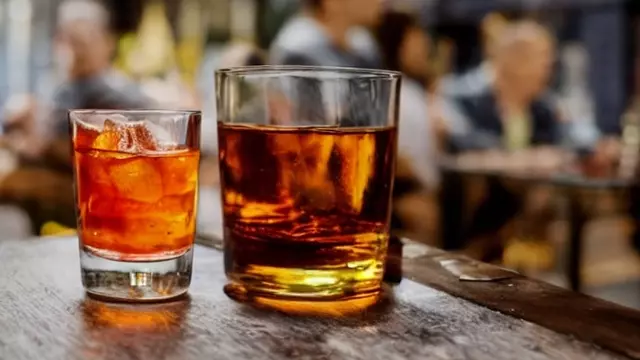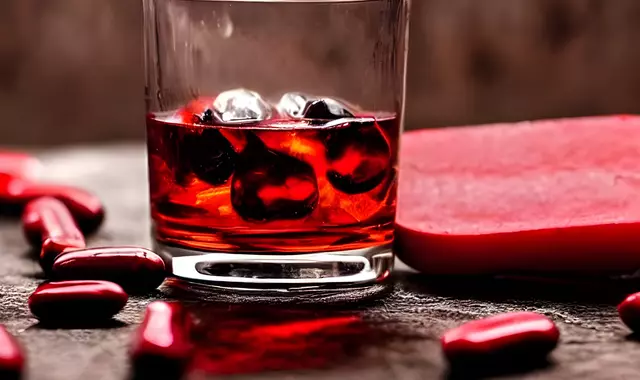As we all know, alcohol is a depressant. But did you know that it can also act as a blood thinner? That’s right – alcohol can help to thin your blood and prevent clotting.
So, if you’re looking to improve your cardiovascular health, moderate drinking may be something to consider. Of course, always check with your doctor first to see if this is right for you. Cheers!
What is a blood thinner?
A blood thinner is a medication used to reduce the risk of heart attack, stroke, or other serious outcomes from clots in the bloodstream. These medications work by interrupting the process that allows the blood cells to stick together and form clots.
This helps thin out the blood and improves circulation throughout the body. Blood thinners have proven effective for managing conditions caused by unmanaged clottings, such as deep vein thrombosis and pulmonary embolism.
They can also help reduce a patient’s risk of forming dangerous, life-threatening clots related to certain medical treatments or conditions, including;
- atrial fibrillation
- post-operative care
- valve replacements.
Ultimately, regular use of blood thinners helps patients maintain their mobility and lowers their risks associated with major cardiovascular events over time.
Why is alcohol a blood thinner?
Alcohol is a blood thinner because it can reduce the body’s ability to form clots. This can be helpful for people who are at risk of forming unstable blood clots and those with a history of heart disease or stroke where clotting plays an important role in protection.

Alcohol also affects the functioning of platelets, which play an important role in blood clot formation. It is important to note that while alcohol can help thin your blood, it should be consumed in moderation as overconsumption can have serious health implications.
How does alcohol thin the blood?
Alcohol consumption is rightly linked to all sorts of ills, chief among them being an increased likelihood of stroke and heart attack.
An NIH study revealed even more concerning evidence that shows consuming alcohol also thins the blood, making these dangerous health conditions even more likely.
It’s not just heavy drinking that has this effect anyone who drinks any amount of alcohol can be adversely affected in this way. Make sure to adroitly stay away from it when you feel a bout with one of the many potentially harmful side effects coming on.
That’s the responsible thing to do for yourself and those around you.
How effective of a blood thinner is alcohol
Alcohol is an effective blood thinner if consumed in measured amounts.
A shot of alcohol typically contains 8-14% of alcohol and how much it thins the blood varies depending on how much is consumed at once.
some studies have shown that consuming one shot a day can have notable thinning effects on the blood and this can be beneficial for medical purposes such as treating heart diseases.
Thankfully, moderate drinking does not result in too serious of problems, although heavy consumption over long periods should be avoided due to potential health risks.
What blood alcohol level is lethal
The blood alcohol level at which a person becomes legally intoxicated varies from country to country, but it is generally accepted that a BAC (blood alcohol content) of 0.08% or higher is considered dangerous and potentially lethal.

At this level, the drinker will likely experience impaired judgment, coordination, and motor skills as well as an increased risk of accidents or falls.
At a BAC of 0.25%, the drinker will be in a state of deep intoxication and may experience life-threatening levels of respiratory depression, coma, and even death due to alcohol poisoning. It is important to note that each person’s reaction to alcohol can vary greatly, so it is important to monitor your drinking and the drinking of those around you.
Can alcohol act as a substitute for taking blood thinners?
When it comes to taking medication to thin one’s blood, many people turn to alternative means such as alcohol.
While alcohol may appear to thin the blood a bit, does it serve as an effective substitute for prescribed blood thinners? No – consuming alcohol for this purpose is not recommended and can be dangerous.
It isn’t always clear how much of an effect it has on the body, and it could have other adverse effects. Blood thinners from a doctor are more reliable and would be the best way to manage one’s condition.
Can you drink alcohol while taking blood thinners?
Though drinking while taking certain blood thinners may seem like a harmless act, it is not recommended. Alcohol affects the metabolism of blood thinners in the body, thus preventing them from working as intended.
Even small amounts of alcohol can hurt how well these medications work, sometimes even doubling their effects and increasing the risk of unwanted side effects including bleeding or injuries to internal organs.
Thus, it is important to keep in mind the potential repercussions that may come with combining these two seemingly-harmless substances.
Drinking alcohol while taking blood thinners should always be discussed with your doctor first to properly assess risks and find a plan that works best for you.
